Lefuhans-20 Tablet 30's
MRP ₹490
(Inclusive of all Taxes)
₹73.5 Cashback (15%)
Provide Delivery Location
Online payment accepted
 Prescription drug
Prescription drugWhats That
Composition :
Manufacturer/Marketer :
Consume Type :
Expires on or after :
Return Policy :
About Lefuhans-20 Tablet
Lefuhans-20 Tablet belongs to the group of medicines called 'anti-rheumatic agents' used to relieve symptoms of rheumatoid arthritis and psoriatic arthritis. Rheumatoid arthritis is an auto-immune disease (the body's immune system attacks its tissue) which leads to joint pain and damage. Psoriatic arthritis is a kind of inflammatory arthritis which occurs in patients with psoriasis (red patches of skin with silvery scales).
Lefuhans-20 Tablet contains 'Leflunomide' an isoxazole immunomodulatory agent which works by blocking the formation of genetic material, i.e. DNA required for survival of replicating (dividing) cells of the immune system. As a result, it suppresses the activated immune system to reduce pain, inflammation and swelling.
Take Lefuhans-20 Tablet at the same time every day as prescribed by your doctor. In some cases, Lefuhans-20 Tablet may cause common side-effects such as diarrhoea, nausea, stomach pain, indigestion, rash, and hair loss. Most of these side effects do not require medical attention and will resolve gradually over time. However, you are advised to talk to your doctor if you experience these side effects persistently.
Do not take Lefuhans-20 Tablet if you are pregnant or planning for pregnancy as Lefuhans-20 Tablet may cause serious congenital disabilities. Lefuhans-20 Tablet should not be taken by breastfeeding mothers as it passes into breast milk. Lefuhans-20 Tablet may cause dizziness, so drive with caution. Avoid consuming alcohol along with Lefuhans-20 Tablet as it could lead to increased dizziness and liver damage. Lefuhans-20 Tablet may make you more susceptible to infections; consult your doctor if you develop any signs of infections such as fever, sore throat, breathlessness, jaundice, unexplained bleeding or bruising.
Uses of Lefuhans-20 Tablet
Directions for Use
Key Benefits
Lefuhans-20 Tablet belongs to the group of medicines called anti-rheumatic agents used to relieve symptoms of rheumatoid arthritis and psoriatic arthritis. Lefuhans-20 Tablet is a disease-modifying antirheumatic drug (DMARDs) which inhibits an enzyme called dihydroorotate dehydrogenase and has antiproliferative activity (suppresses the cell growth). Thereby, helps in treating inflammation, redness, and swelling.
Storage
Drug Warnings
Do not take Lefuhans-20 Tablet if you are allergic to leflunomide, have severe liverkidney problems, low levels of protein in the blood, immune system problems, bone marrow problems, or serious infections. Lefuhans-20 Tablet is not recommended to be used in pregnant women, lactating mothers and people below 18 years of age. Talk to your doctor before taking Lefuhans-20 Tablet if you have/had serious infections like interstitial lung disease (inflammation of lungs), tuberculosis (TB), or pneumonia. Lefuhans-20 Tablet may cause dizziness, so drive with caution. Lefuhans-20 Tablet may make you more susceptible to infections; notify the doctor if you develop infections, sore throat, breathlessness, jaundice, unexplained bleeding or bruising.
Diet & Lifestyle Advise
- Physical activity helps in strengthening muscles and relieves joint stiffness. Gentle activities like 20-30minutes of walking or swimming would be helpful.
- Performing yoga may also help in improving joint flexibility and pain management.
- Maintain a healthy weight by performing regular low-strain exercises and eating healthy food.
- Get adequate sleep as resting the muscles can help in reducing inflammation and swelling.
- De-stress yourself by meditating, reading books, taking a warm bubble bath or listening to soothing music.
- Acupuncture, massage and physical therapy may also be helpful.
- Eat food rich in antioxidants such as berries, spinach, kidney beans, dark chocolate, etc.
- Foods containing flavonoids help in reducing inflammation. These include soy, berries, broccoli, grapes and green tea.
- Avoid smoking and alcohol consumption.
Side Effects of Lefuhans-20 Tablet
- Diarrhoea
- Nausea
- Stomach pain
- Indigestion
- Rash
- Hair loss
Habit Forming
Therapeutic Class
All Substitutes & Brand Comparisons
RX
Rheulef 20 Tablet 10's
Newgen Life Sciences Pvt Ltd
₹170
(₹15.3 per unit)
4% COSTLIERRX
Out of StockArava 20 mg Tablet 30's
Sanofi India Ltd
₹571.1
(₹17.13 per unit)
16% COSTLIERRX
Rumalef 20 Tablet 30's
Zydus Cadila
₹615
(₹18.45 per unit)
25% COSTLIER
Author Details
We provide you with authentic, trustworthy and relevant information
FAQs
Drug-Drug Interactions Checker List
- IBUPROFEN
- NAPROXEN
- ACETAMINOPHEN
- ASPIRIN
- DULOXETINE
- PREDNISONE
- CELECOXIB
- AZATHIOPRINE
- MELOXICAM
- METHOTREXATE
- ETANERCEPT
- ADALIMUMAB
- ABATACEPT
- INFLIXIMAB
- HYDROXYCHLOROQUINE
Special Advise
Regular blood tests to monitor your liver function after starting Lefuhans-20 Tablet , and for every 6-8 weeks are advised.
Disease/Condition Glossary
Rheumatoid arthritis: It is an auto-immune disease (where the body's immune system attacks its tissue) which leads to joint pain and damage. Symptoms of rheumatoid arthritis include pain, inflammation of joints, difficulty in moving and swelling. Patients with rheumatoid arthritis have intense joint pain (especially knee joint) with stiffness.
Psoriatic arthritis: Psoriatic arthritis is an autoimmune disease characterized by inflammation of the skin (psoriasis) and joints (inflammatory arthritis). It mainly affects large joints in the lower extremities, distal joints of toes and fingers, back and pelvis. Symptoms include inflammation of joints, difficulty moving, swelling, patches of red, scaly skin and pain.

Have a query?
Alcohol
Safe if prescribed
You are recommended to avoid alcohol consumption while taking Lefuhans-20 Tablet . Alcohol intake, along with Lefuhans-20 Tablet , may cause liver disease.
Pregnancy
Consult your doctor
It is not recommended to take Lefuhans-20 Tablet while you are pregnant. Lefuhans-20 Tablet may cause serious birth defects.
Breast Feeding
Consult your doctor
It is not recommended to take Lefuhans-20 Tablet while you are breastfeeding. Lefuhans-20 Tablet passes into breast milk.
Driving
Safe if prescribed
Lefuhans-20 Tablet may cause dizziness and tiredness; do not drive or operate heavy machinery if you feel dizzy.
Liver
Consult your doctor
Please consult your doctor if you have liver impairment before taking Lefuhans-20 Tablet .
Kidney
Consult your doctor
Please consult your doctor if you have kidney impairment before taking Lefuhans-20 Tablet .
Children
Safe if prescribed
Lefuhans-20 Tablet is not approved for children under the age of 18 years.





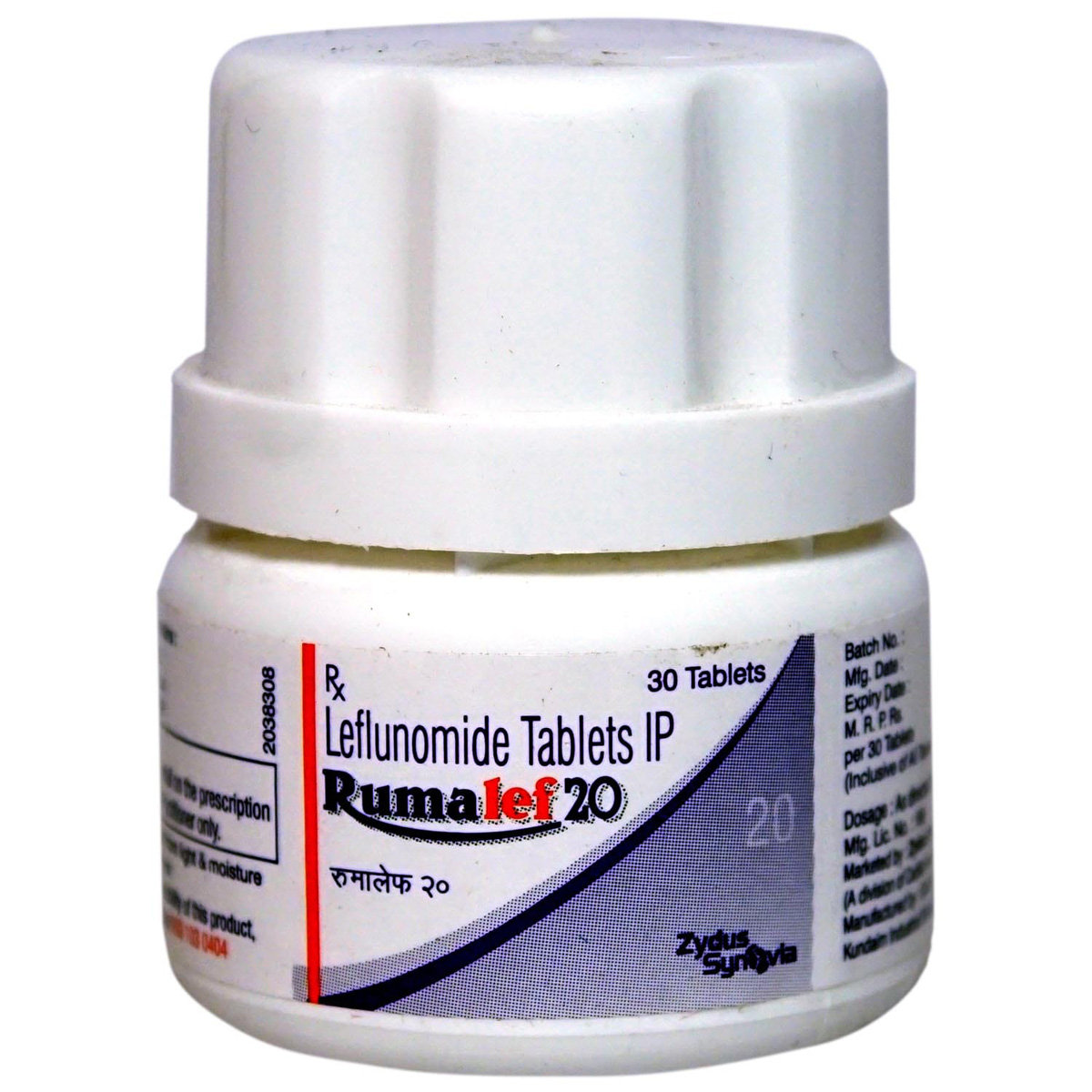

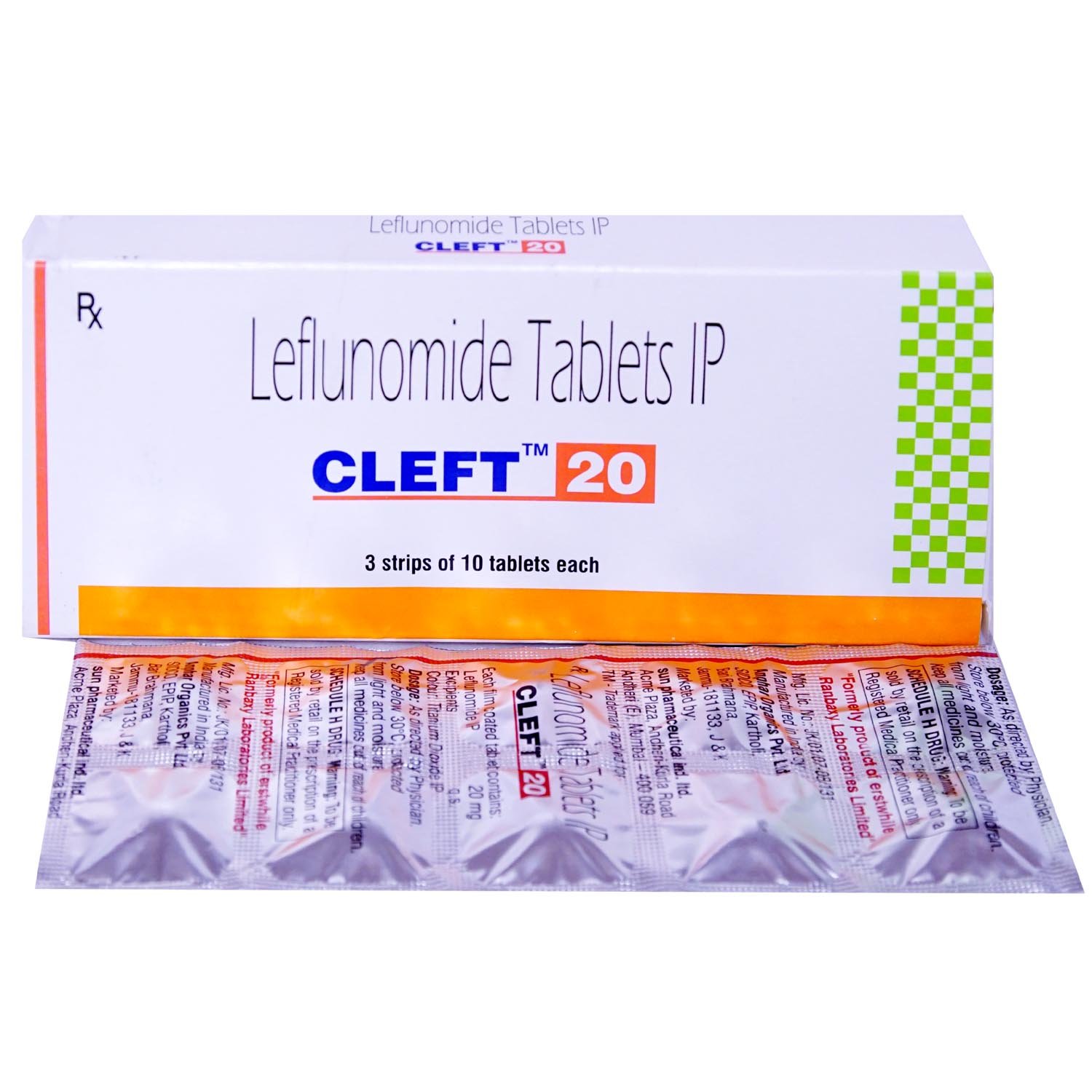
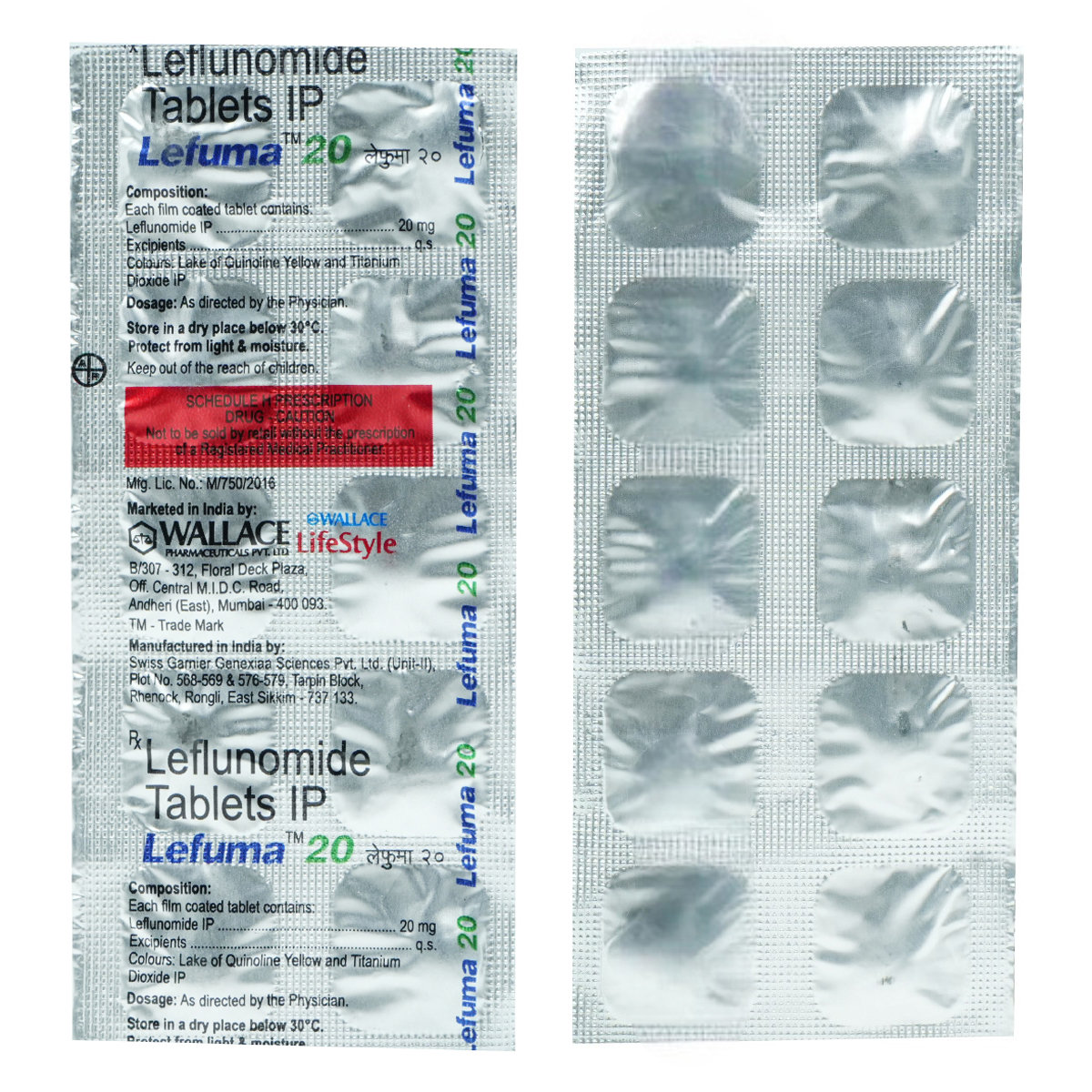
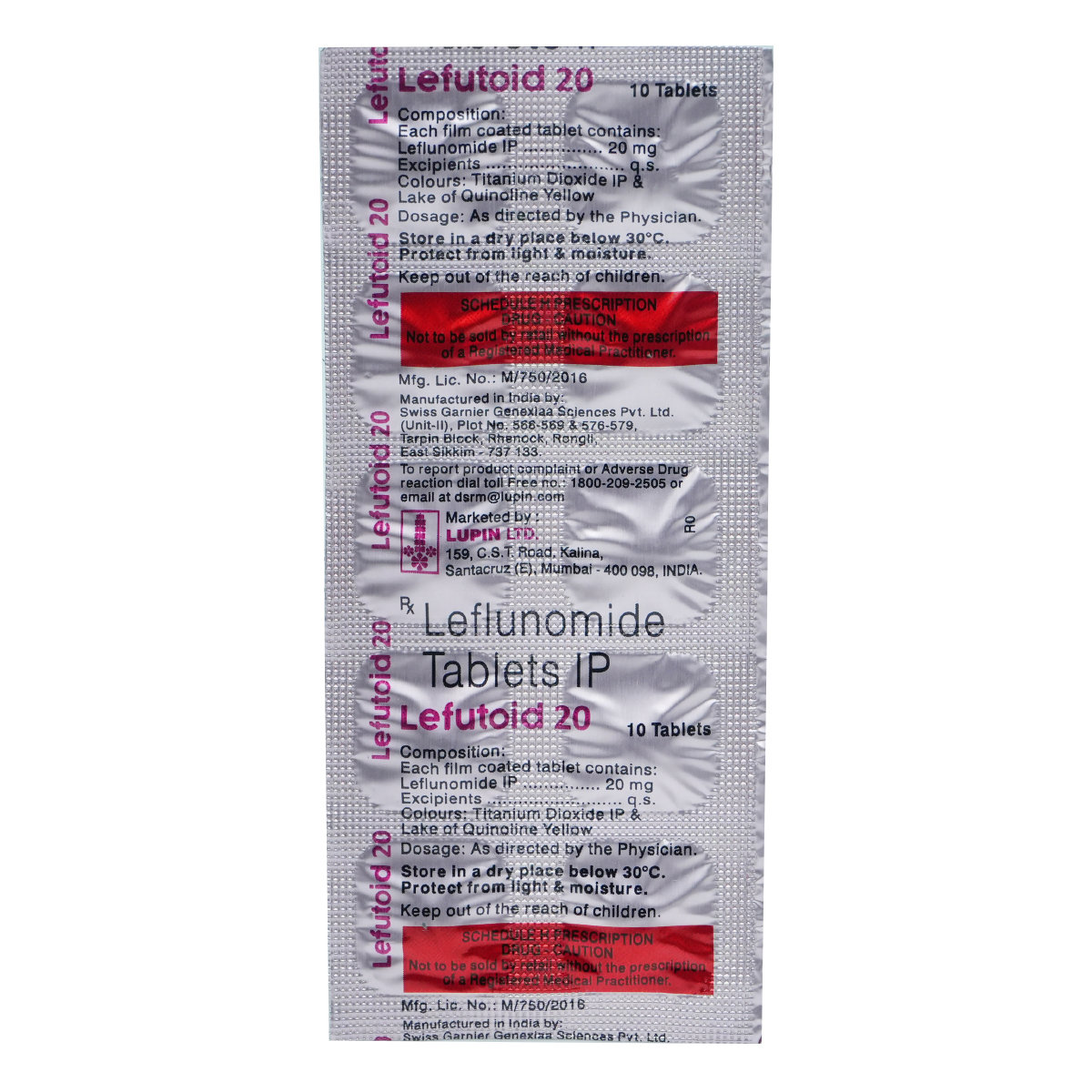
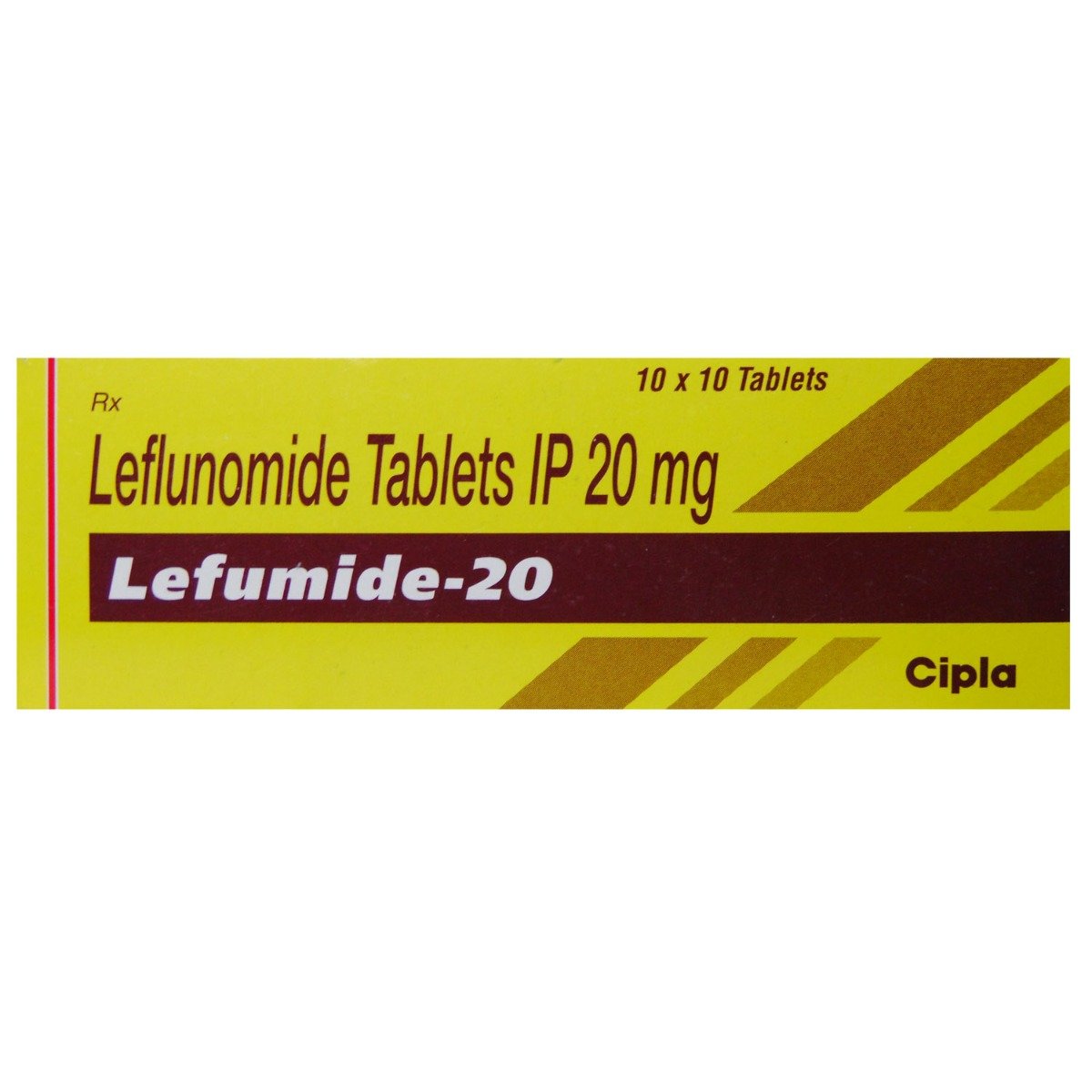

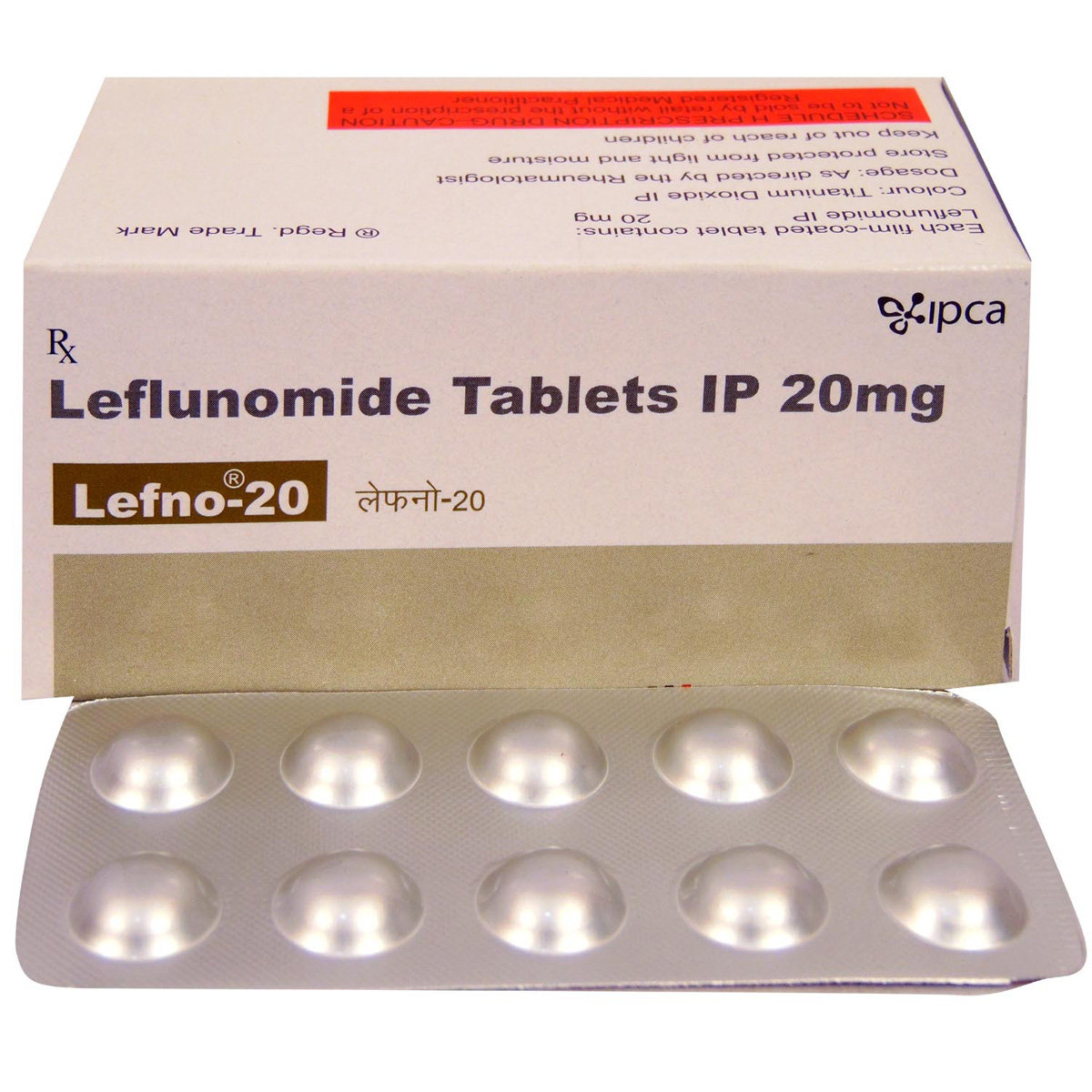


_0.jpg?tr=q-85)

